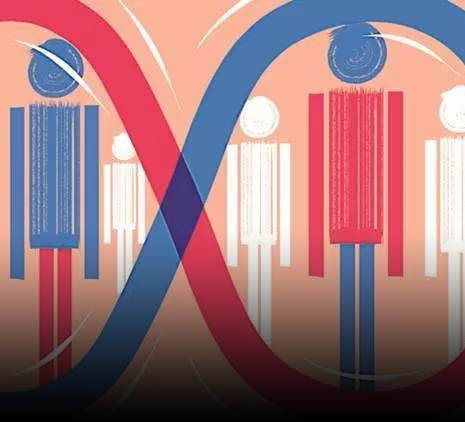DNA Technology (Use and Application) Regulation Bill 27/06/2019 – Posted in: Daily News
DNA TECHNOLOGY (USE AND APPLICATION) REGULATION BILL
For: Preliminary & Mains
Topics covered: DNA technology bill – Highlights, importance, significance and concern
News Flash
The cabinet cleared the DNA Technology (Use and Application) Regulation Bill in order to enact a law to regulate the use of DNA technology in the country.
Purpose of the Bill
- The Bill seeks to create a regulatory framework for obtaining, storing and testing of DNA samples of human beings, mainly for the purposes of criminal investigations, and with the objective of establishing the identity of a person.
- DNA testing is already being used for a variety of purposes, such as criminal investigations, the establishment of parentage, and search for missing people.
- The proposed law seeks to bring in a supervisory structure to oversee these practices.
- The Bill will also frame guidelines and rules so that DNA technology is not misused.
How to achieve Bills objectives?
- The bill proposes to set up two institutional structures — a DNA regulatory board, and a DNA data bank — at the national level.
- Regional centres of the board as well as the data bank can be set up at the state level as well.
The board, which is proposed to be the main regulatory authority, would frame the rules and guidelines for DNA collection, testing and storage.
The data bank would be the repository of all DNA samples collected from various people under specified rules.
Who can collect DNA Samples?
According to the provisions of the proposed law, police can ask for DNA samples of the person accused of an offence to facilitate their investigation.
What are the conditions for collecting sample?
Unless the offence is of a very serious nature, punishable by death or by imprisonment for at least seven years, the DNA sample can be obtained only on the written consent of the accused.
It can be also be obtained if an authorised magistrate is satisfied that a DNA test is absolutely necessary for investigation of the crime.
People who are witness to a crime, or want to locate their missing relatives, or in similar other circumstances, can volunteer to give their DNA samples, again through written consent.
DNA samples can be collected from the objects found at the crime scene, or from the body of the accused or volunteer.
Who can store or remove DNA sample information?
Under the provisions, the data banks are required to store the information under one of the five indices — a crime scene index, a suspect or undertrial index, an offenders’ index, a missing persons’ index, and an unknown deceased persons’ index.
Although information from DNA can yield a lot of information about the person, the data banks are supposed to store only that information that is necessary to establish the identity of the person.
While the information in the crime scene index can be stored permanently, entries in other indices can be removed through processes prescribed.
People whose DNA samples have been collected, either from the crime scene or through voluntary written consent, can also request the removal of their information from the index.
DNA Technology concerns
The main concern over the proposed law has been around three issues — whether the DNA technology is foolproof, whether the provisions adequately address the possibility of abuse of DNA information, and whether the privacy of the individual is protected.
DNA information can not only establish a person’s identity but also reveal a lot about physical and biological attributes of the person like eye, hair or skin colour, susceptibility to diseases, possible medical history, and possible clues to biological relatives.
It is also said that collecting and storing such intrusive information could lead to abuse, besides being violative of a person’s privacy.
Source: Indian Express
You can follow us on LinkedIn and for more updates related to UPSC IAS Preparation, Like our Facebook Page and subscribe our Diligent IAS Youtube Channel
Also, Read Related Daily News
- United Nations Security Council- India’s Non-Permanent membership
- Improvised Explosive Devices – Components and Types
- National Register of Citizens
- Waste segregation systems in India
- Agro-ecological zones
- Narco-Terrorism
- Report on Magnitude of Substance abuse in India- 2019
- Payments related data to be stored only in India

